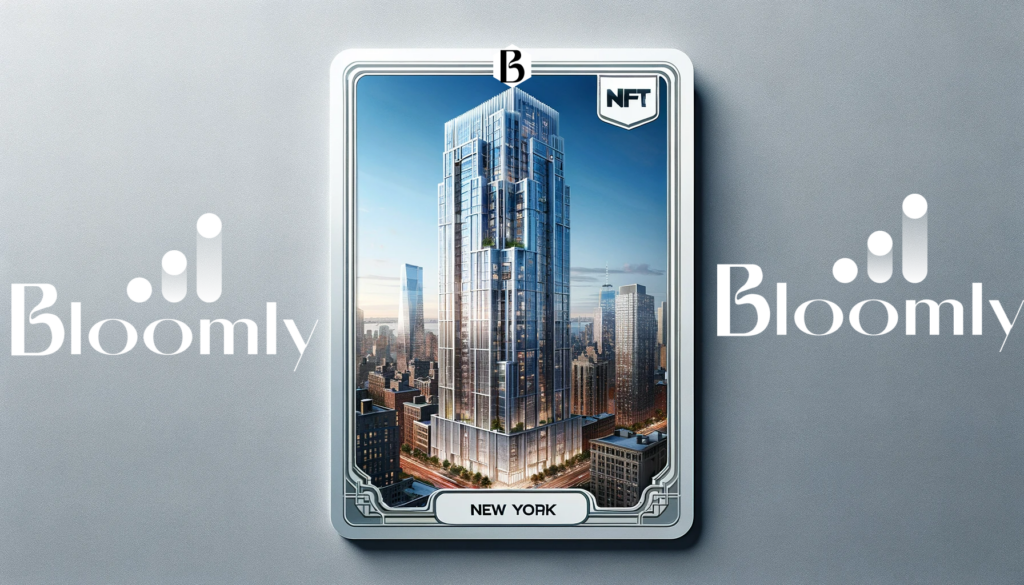
In today’s ever-evolving real estate landscape, developers are presented with a groundbreaking opportunity that transcends borders and opens the doors to a global pool of investors. Enter real estate tokenization, a game-changing concept that brings together the world of traditional property investment and the dynamic realm of digital assets. In this article, we will explore the compelling statistics and data-driven insights behind real estate tokenization, showcasing why developers should consider leveraging this innovative approach to attract a diverse array of global investors.
Blockchain technology’s impact on the real estate industry has been significant. A report from Security Token Market and Security Token Advisors highlighted the growing market for tokenized real estate, which has surpassed $20 billion in size. This form of investment allows for traditional and fractionalized ownership of real estate properties, potentially attracting investors from the cryptocurrency space who are accustomed to blockchain technology. This trend reflects an increasing interest in more secure investments backed by real-world assets, like real estate.
The Promise of Tokenization in the Real Estate Market:
Imagine a world where real estate, traditionally an exclusive and somewhat rigid investment domain, becomes accessible and fluid. This is where tokenization comes into play. Real estate tokenization is an innovative and emerging trend in property investment and financing that involves dividing ownership of real estate into digital tokens using blockchain technology. This process transforms physical property assets into digital tokens that can be bought, sold, and traded on digital platforms, much like stocks or cryptocurrencies.
Deloitte suggests a bold future where up to 10% of the world’s GDP could be stored on blockchain platforms by 2030, with real estate playing a significant role. This vision is not far-fetched, considering the global real estate market’s worth — a staggering $8.5 trillion according to McKinsey & Company. If even a fraction of this market embraces tokenization, the impact will be revolutionary.

The Transformation of Real Estate Tokenization Begins:
The story of real estate tokenization unfolds with understanding its benefits:
Global Accessibility: Tokenization reduces geographic barriers, enabling investors from every corner of the globe to participate in the real estate market. The inclusivity of this approach opens up a wealth of opportunities for developers to engage with a diverse array of investors.
Enhanced Liquidity: In stark contrast to the traditionally sluggish nature of real estate transactions, tokenized assets can be bought and sold swiftly. This attribute not only enhances liquidity but also provides investors with a level of flexibility that was previously unimaginable in the world of property investment.
Reduced Entry Barriers: Tokenization democratizes real estate investments. Investors can now acquire fractions of properties, making it financially feasible for a broader audience to partake in this asset class. This accessibility fosters greater market participation and diversification.
Transparency and Security: Blockchain technology underpins real estate tokenization, ensuring transparent ownership records that are secure and immutable. This added layer of transparency and security is paramount for global investors who prioritize trust and asset protection.
Secondary Market Opportunities: Tokenized assets can be traded on secondary markets, providing investors with opportunities for liquidity and portfolio optimization. This feature not only fosters increased participation but also serves as a vehicle for efficient capital allocation.
Developer Control: Developers can establish their markets on platforms like Bloomly, gaining greater control over the trading and liquidity of their tokenized real estate assets while benefiting from secondary sales transactions that can further boost revenue and investment appeal.
The Evolving Landscape of Real Estate Tokenization:
As we delve deeper into this narrative, we encounter the global cryptocurrency market, a realm that has grown to a colossal $2.8 trillion in market capitalization at it’s peak, as per Statista’s reports. This growth is not just in size but in maturity. The demographic of cryptocurrency investors is evolving, with a significant portion now over 45 years old, suggesting a shift towards more experienced investors seeking portfolio diversification.
Real World Applications and Success Stories for Real Estate Tokenization:
Our story wouldn’t be complete without real-world examples. Consider the St. Regis Aspen Resort, tokenized in 2018, which allowed investors globally to own a piece of this luxury property. This property became one of the first examples of commercial real estate tokenization when it entered into an agreement with tZERO in July 2020 to digitize equity interests representing approximately 19% of the property. The digital security representing this equity interest started trading on the tZERO ATS (Alternative Trading System), marking a significant step forward in real estate tokenization and demonstrating the potential for such assets to be traded in a regulated marketplace.
The Shard, London: Tokenized in 2021, The Shard represents a significant step in the real estate tokenization movement. This iconic building, one of the tallest in the United Kingdom, opened up investment opportunities to a wider range of investors through tokenization. By converting a portion of the building’s value into digital tokens, investors could purchase shares in The Shard, making it accessible to those who might not have the capital for large-scale real estate investments. This tokenization not only democratized access to investment in a landmark building but also added a new dimension to the financial ecosystem of real estate in London, a major global financial hub.
Greenland Centre, New York: The tokenization of the Greenland Centre in 2020 by the Greenland Group was a pioneering move in the New York real estate market. This luxury residential skyscraper, located in a prime area of New York City, attracted a significant amount of attention from international investors following its tokenization. By offering a part of the property in the form of digital tokens, it allowed for fractional ownership, reducing the entry barrier for investors and setting a new precedent for real estate transactions in one of the world’s most prestigious cities. This move was not just about investment; it was about transforming the way real estate is perceived and traded in a major city like New York.

The Future Unfolds:
In this evolving narrative, real estate tokenization is not just a fleeting trend; it’s a chapter in a larger story of market transformation. As more experienced investors enter the cryptocurrency market, their inclination towards diversifying with tangible assets like real estate becomes evident. Developers at the forefront of this shift stand to unlock new markets, dismantle geographical barriers, and introduce a level of liquidity and transparency previously unseen in real estate investment.
The potential of real estate tokenization, therefore, is not just in the current value it brings but in the vast, untapped possibilities it holds for the future of property investment.
Get in touch if you want learn more about how to tokenize your real estate property development.
